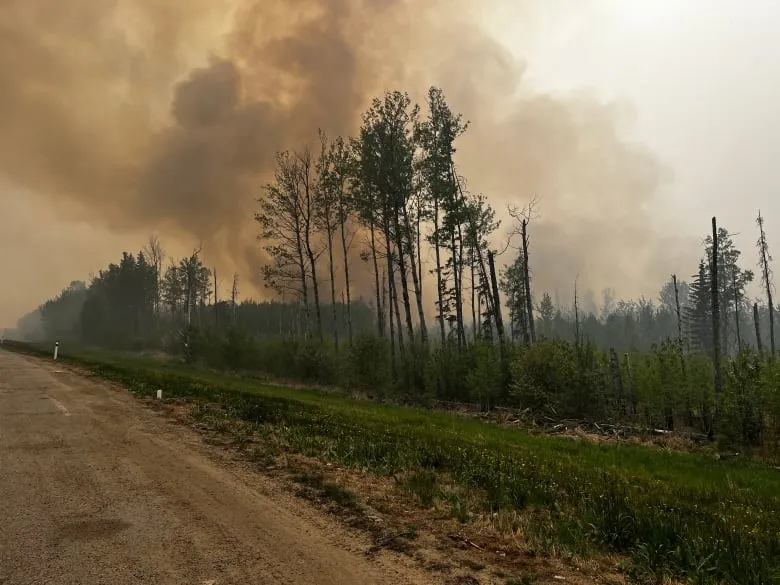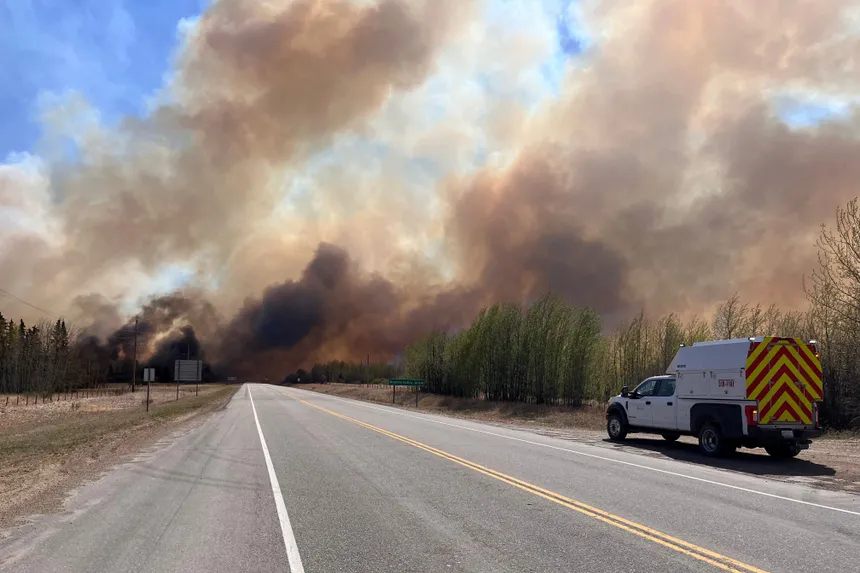Heavy rains have brought a welcome reprieve to western Canada’s wildfire-ravaged region, with crews hailing it as a “turning point” in their efforts to control the blazes. However, officials are also warning that the much-needed downpour comes with the risk of catastrophic flooding and new fires sparked by lightning strikes.
In Alberta, the worst start to a fire season on record has seen 512 wildfires consume over 945,000 hectares of land, surpassing the previous record of 615,000 hectares set in 2019. But with cool, wet weather descending over the weekend and more forecast for the coming days, fire officials are optimistic that the worst is behind them. “This could be a turning point for the firefighters working out there on the fires,” said Christie Tucker of Alberta Wildfire. “Everyone is relieved to see some rain after weeks of battling aggressive fires.”
The rains have brought relief to the region, with temperatures cooler and humidity higher, making it easier for firefighters to gain ground on the blazes. Crews are still working to contain 81 fires, including 23 that are still out of control, with over 10,000 people remaining under evacuation orders.

But the heavy rainfall also poses a significant threat of flooding, with as much as 75mm of rain expected to fall in some areas of the province by midweek. In Calgary, the rains have brought a welcome respite from the thick orange haze of smoke that has blanketed the city for days, making it the most polluted major city on Earth.
In British Columbia, the rains have also brought relief, with all evacuation orders in the north-eastern part of the province lifted or downgraded. However, fire officials are warning that the heavy precipitation could also bring thunderstorms and lightning strikes, sparking new fires and highlighting the “Whac-a-Mole” reality of managing wildfires.
Despite the rain, fire officials in both British Columbia and Alberta are cautioning that the risk of new fires igniting is still high, particularly in areas where vegetation is dry and prone to ignition. The River Forecast Centre in British Columbia has issued flood watches for much of east-central British Columbia, warning of the risk of flooding or debris flows.
Experts warn that the combination of hot wildfires and heavy rainfall can lead to catastrophic flooding, as the water is pushed off the terrain and into swollen rivers. The situation is a stark reminder of the devastating consequences of poor forestry practices and the need for more responsible land management practices to prevent the spread of wildfires.

